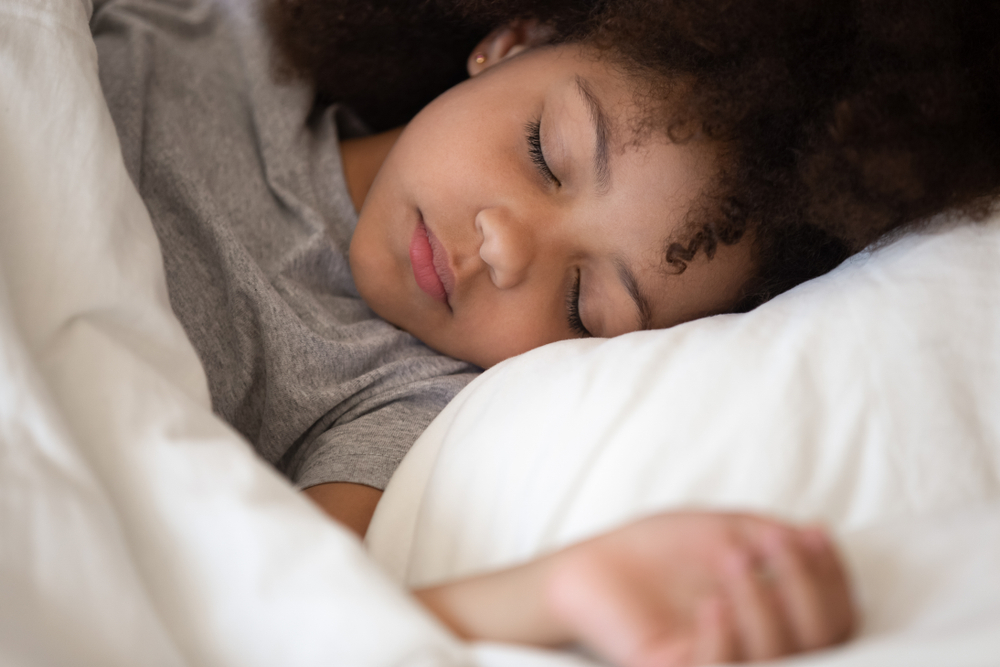We are enrolling! Join us in nurturing young minds, fostering creativity, and creating a brighter future. We're excited to introduce your child to a world of possibilities! Contact us today for details.

Remember when you were little and taking a nap or going to bed were the worst part of your day? It was basically torture to have to go to bed before the sun went down! My, how things change as we grow older! Your preschooler will not understand any more than you did at his age why sleep is so important, but developing healthy sleep habits in your preschooler is just as necessary as making sure he eats well and gets plenty of exercise. These habits include sleeping in his own bed, getting the necessary amount of sleep, and a solid routine.
A Place of His Own
It is easiest to train a toddler to sleep in his own room from the beginning than it is to have to teach it later on after other sleeping habits have been made. It is widely advised by medical professionals that children sleep in their own space and on their own sleeping surface. This sets your child up for sleep success. Eliminating noise and distractions by having their own sleeping space helps preschoolers be able fall asleep and stay asleep. If a special blanket or stuffed animal helps your preschooler feel safe in their own bed, that is perfectly fine! Just be careful not to load up their bed with so many distractions that they can not sleep!
How Much is Enough?
Your preschooler needs a total of 11 to 12 hours of sleep each 24 hour period. If your preschooler takes a two hour nap every day, he only requires 9 to 10 hours of sleep at night. When deciding on your preschooler’s bedtime, take into account the time your child needs to wake up in the morning and how much time he spends napping during the day. This will help you to narrow down the right time to put him to bed.
A Routine to Sleep On
Preschoolers thrive on routine, and making a routine of bedtime is no different. Routines give preschoolers a sense of control because they can predict what is going to happen next. A suggested after dinner nightly routine would include:
- Quiet play time: Depending on how much time you have between dinner and bed time, you may have a few minutes for quiet play. This could include puzzles, coloring, watching tv, etc. The key is to keep the atmosphere quiet and calm. If you do not have extra time after dinner, then start bath time right after eating.
- Bath: Not only is a bath a good idea after all the daily grime that needs to be washed away, it is also a good winding down activity. It is a good signal that the day is over, and it is time to get ready for bed.
- Pajamas: After bath, brush teeth, go potty and get dressed for bed. Wear seasonally appropriate pajamas to ensure a comfortable night of sleep. Being too hot or too cold can contribute to restless sleep.
- Read: Reading a book is a great way to connect positively with your child for the last few minutes right before bed. Keep it short, focused, and full of love.
- Tuck In and Sleep: After a bear hug and kiss on the cheek, tuck in your preschooler and say goodnight. Make this your cue to slip away. Do not linger and entertain requests for a drink, answers to eleven questions, and one last ditch effort to stay up a little longer! Say goodnight and make your way to the exit!
Yes, your preschooler will probably test you, especially if the routine is new. But, keeping a consistent routine will help him learn what to expect and in turn help him to get better sleep at night.
If you enjoyed this blog, please take a look at our school’s blog page. There you will find blogs on a wide variety of topics that we believe will be beneficial to you and your family.
Want to learn more about Kids ‘R’ Kids Learning Academy of Greatwood located in Richmond, Texas? Our mission is to provide secure, nurturing, and educational environments for children ages 6 weeks – 12 years. We help children to bloom into responsible, considerate, and contributing members of society. For more information, give us a call or stop by for a tour! We’d love to get to know you and your family.